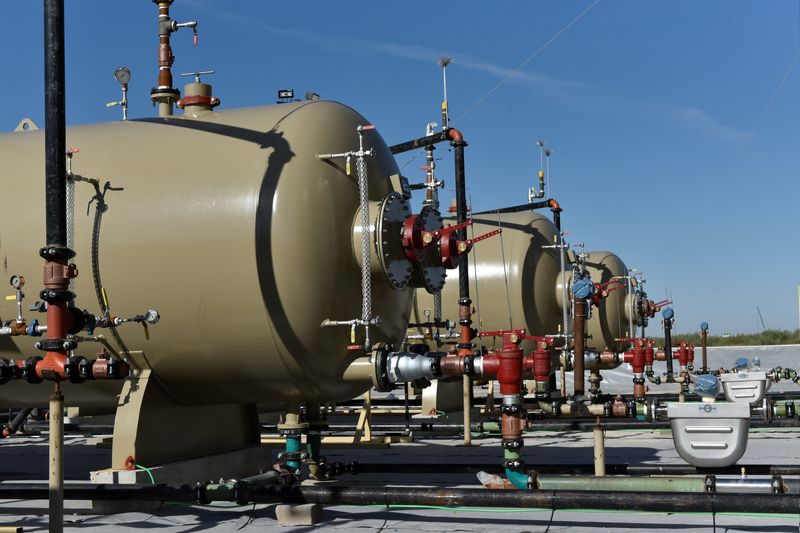Investing.com -- Oil prices settled higher Thursday, as traders digested falling crude inventories and ongoing rising hopes for the U.S. rate cuts following weaker-than-expected economic data.
At 14:30 ET (18:30 GMT), the U.S. crude futures traded 0.7% higher to settle at $82.17 a barrel and the Brent contract climbed 0.8% to $85.71 a barrel. There was no WTI settlement on Wednesday because of a U.S. public holiday.
US crude, gasoline stocks fall
U.S. oil stocks fell by 2.5 million barrels last week barrels in the week to Jun. 14, but while that missed expectations for a decline of 2.8M barrels it wasn't as bad as feared following the American Petroleum Institute, an industry body, report on Tuesday showing that weeklyU.S. crude stocks rose by 2.26 million barrels.
An unexpected fall in weekly gasoline supplies by 2.3M barrels, compared with forecasts for a build of 1.5M barrels, and 1.7M barrel decline in distillate inventories, also added to bets that the typical rise in energy demand over the summer months is now underway following a sluggish start.
US rate cut bets get boost from weaker economic data
The prospect of sooner rather than later Federal Reserve rate cut also helped boost sentiment on oil prices after a flurry of weaker-than-expected economic data.
Economic data released earlier Thursday pointed to a slowing economy, with initial jobless claims coming in at 238,000, above the 235,000 expected, while housing starts slumped 5.5% in May.
The odds of a September rate cut climbed slightly to 59.5% from 57.5% the previous day, according to Investing.com's Fed Rate Monitor Tool.
Middle East conflict adds geopolitical risk
Oil prices have been supported because of a growing geopolitical risk premium driven by conflict in the Middle East.
A Greek-owned ship attacked by Yemen's Houthi militants in the Red Sea last week has sunk, salvagers confirmed on Wednesday, after it was hit by missiles and an explosive-laden remote-controlled boat.
Iran-aligned Houthi militants first launched drone and missile strikes on the important trade route in November in what they say is solidarity with Palestinians in Gaza.
Israeli Foreign Minister Israel Katz warned earlier this week of a possible "all out war" with Lebanon's Hezbollah, as the country continues its conflict with Hamas in Gaza.
Strength in physical market
Also supportive for oil, were some signs of strength in the physical market.
“The prompt ICE Brent time spread has strengthened, while the Dated to Frontline (NYSE:FRO) Brent (DFL) swap has moved deeper into positive territory and to its highest level since early May,” said analysts at ING, in a note.
“Our balance shows the market tightening in the third quarter of this year after the rollover of OPEC+ cuts, so we should be seeing signs of a tightening in the physical market. However, how tight it becomes depends on how demand performs.“
Peter Nurse contributed to this story.
